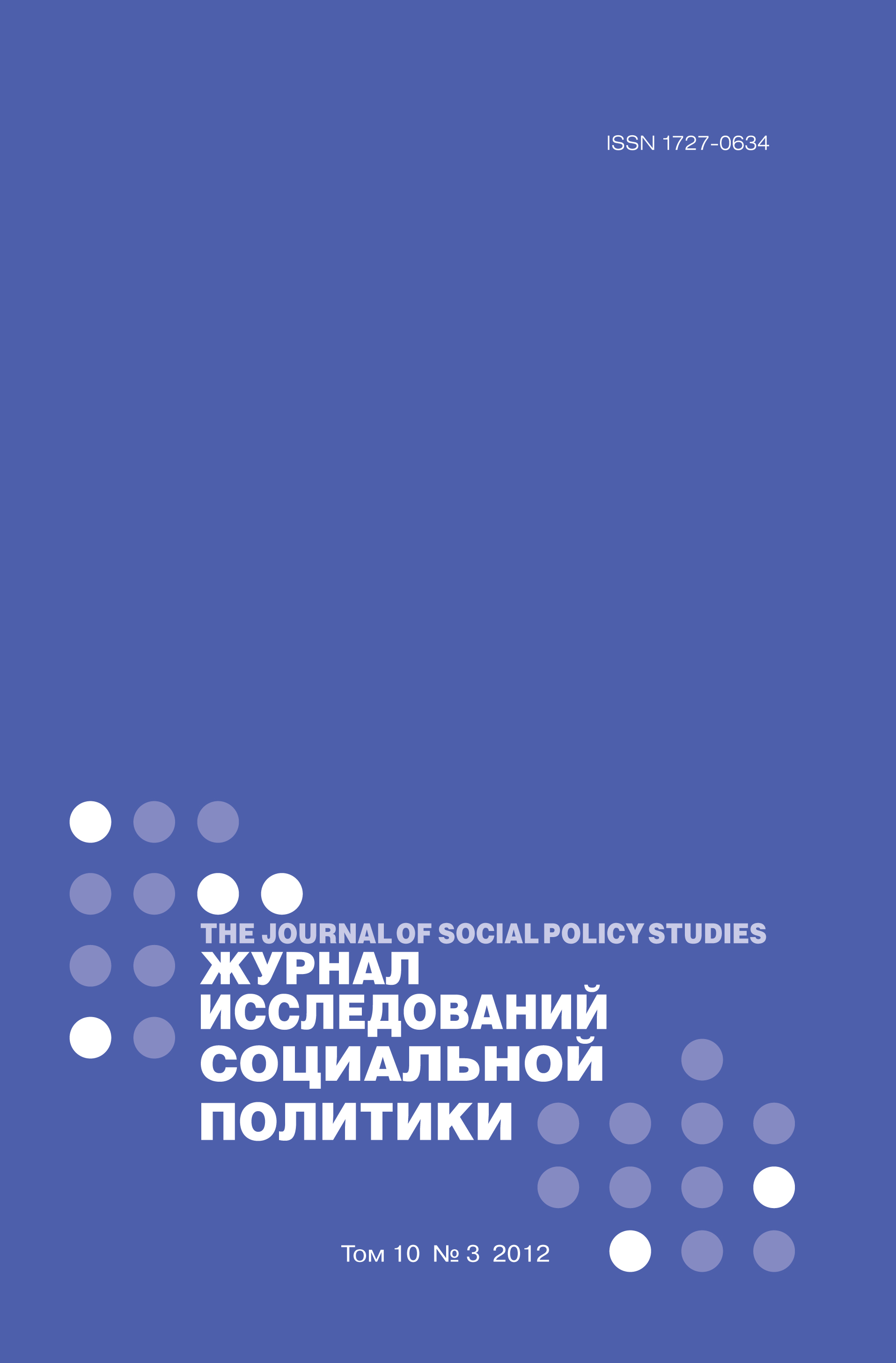Reproductive Attitudes and Their Realization in Modern Russia
Abstract
The primary goal of this article is to carry out a comprehensive analysis of reproductive attitudes in contemporary Russian society. The transformation of reproductive behaviour in various countries has been characterised by some general tendencies, such as the drop in the number of children born per woman, and the rise in the average age of becoming a mother. This has been linked to changing social values and a growing gap between normative and actual behaviour. Although policy itself does not necessarily cause a steady increase in reproductive attitudes at a grassroots level, it can act indirectly to produce changes amongst future generations. In this research, the relationship between various elements of reproductive behaviour is examined. Quantitative evaluations of different social trends related to reproduction are carried out based on data from the socio-demographic survey RiDMiZh (2007).
The author reveals the gap between the number of children desired by different social groups in Russia, and the actual number of children born, noting that potential levels of birth rate increase may be determined by this gap. The data indicates that the most significant gap can be observed amongst men and women with higher education, implying that, in the long run, the greatest potential to increase fertility rates lies amongst this population group. This is especially with regard to those planning to have one or two children. Possible ways of encouraging a rise in the fertility rate via family policy are also examined. It is suggested that helping individuals find a balance between employment and parenthood, a measure that is in the most demand amongst highly educated group, may be the most expedient measure overall. Implementing this could entail instituting policies related to employment and the labour market (for example, increasing flexibility of parental leave) and to services (developing new forms of childcare provision, such as family day care). In this context, it is also important to promote greater gender equality in the family, especially via encouraging a wider role for fathers.















